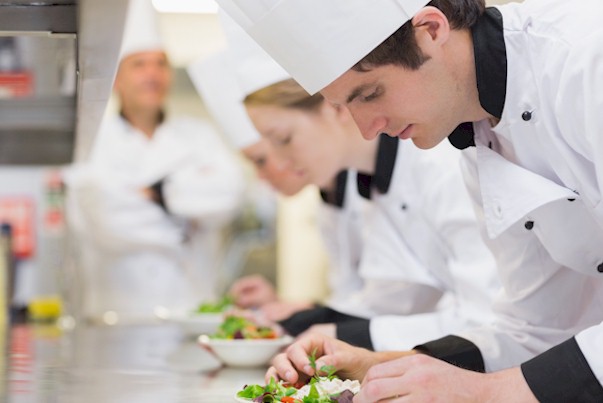
Led by Millennial chefs, hotels continue to foster sustainability, sourcing and wellness within their dining rooms and banquet spaces, and by all measures, this is responsible for an increase in their revenues. In many hotels, the food & beverage division contributes 50 per cent or more to hotel sales and they are currently experiencing double-digit growth. As a result, hotel owners are allocating an increasing amount of square footage for F&B operations. The biggest area of investment is in catering, which is thriving due to weddings, social events and business conferences. Hotels are also investing in on-site market or convenience stores that offer fresh/refrigerated foods, and buffet concepts also continue to expand. Other popular food trends include a rise of fermented offerings such as kombucha, kimchi, sauerkraut, tempeh, kefir and pickles - all to produce the least processed food possible, and to boost probiotics to improve the immune system. Tea is also enjoying something of a renaissance. More people are thinking of tea with the same reverence as coffee due to its many varieties, applications and benefits. Craft tea blending, nitro tea on tap and even tea cocktails are beginning to appear on some hotel menus. Another trend concerns creating a unique, individualized and memorable experience for guests. This could be a small consumable item that is specific to a property or event, such as house-made snack mixes, gourmet popcorn, macaroons, or jars of house-made jams, chutneys, and mustards -all produced and customized in house. One staple that is in decline is the in-room minibar which seems to have fallen out of favor. The August issue of the Hotel Business Review will document the trends and challenges in the food and beverage sector, and report on what some leading hotels are doing to enhance this area of their business.





 Led by Millennial chefs, hotels continue to foster sustainability, sourcing and wellness within their dining rooms and banquet spaces, and by all measures, this is responsible for an increase in their revenues. In many hotels, the food & beverage division contributes 50 per cent or more to hotel sales and they are currently experiencing double-digit growth. As a result, hotel owners are allocating an increasing amount of square footage for F&B operations. The biggest area of investment is in catering, which is thriving due to weddings, social events and business conferences. Hotels are also investing in on-site market or convenience stores that offer fresh/refrigerated foods, and buffet concepts also continue to expand. Other popular food trends include a rise of fermented offerings such as kombucha, kimchi, sauerkraut, tempeh, kefir and pickles - all to produce the least processed food possible, and to boost probiotics to improve the immune system. Tea is also enjoying something of a renaissance. More people are thinking of tea with the same reverence as coffee due to its many varieties, applications and benefits. Craft tea blending, nitro tea on tap and even tea cocktails are beginning to appear on some hotel menus. Another trend concerns creating a unique, individualized and memorable experience for guests. This could be a small consumable item that is specific to a property or event, such as house-made snack mixes, gourmet popcorn, macaroons, or jars of house-made jams, chutneys, and mustards -all produced and customized in house. One staple that is in decline is the in-room minibar which seems to have fallen out of favor. The August issue of the Hotel Business Review will document the trends and challenges in the food and beverage sector, and report on what some leading hotels are doing to enhance this area of their business.
Led by Millennial chefs, hotels continue to foster sustainability, sourcing and wellness within their dining rooms and banquet spaces, and by all measures, this is responsible for an increase in their revenues. In many hotels, the food & beverage division contributes 50 per cent or more to hotel sales and they are currently experiencing double-digit growth. As a result, hotel owners are allocating an increasing amount of square footage for F&B operations. The biggest area of investment is in catering, which is thriving due to weddings, social events and business conferences. Hotels are also investing in on-site market or convenience stores that offer fresh/refrigerated foods, and buffet concepts also continue to expand. Other popular food trends include a rise of fermented offerings such as kombucha, kimchi, sauerkraut, tempeh, kefir and pickles - all to produce the least processed food possible, and to boost probiotics to improve the immune system. Tea is also enjoying something of a renaissance. More people are thinking of tea with the same reverence as coffee due to its many varieties, applications and benefits. Craft tea blending, nitro tea on tap and even tea cocktails are beginning to appear on some hotel menus. Another trend concerns creating a unique, individualized and memorable experience for guests. This could be a small consumable item that is specific to a property or event, such as house-made snack mixes, gourmet popcorn, macaroons, or jars of house-made jams, chutneys, and mustards -all produced and customized in house. One staple that is in decline is the in-room minibar which seems to have fallen out of favor. The August issue of the Hotel Business Review will document the trends and challenges in the food and beverage sector, and report on what some leading hotels are doing to enhance this area of their business.




















